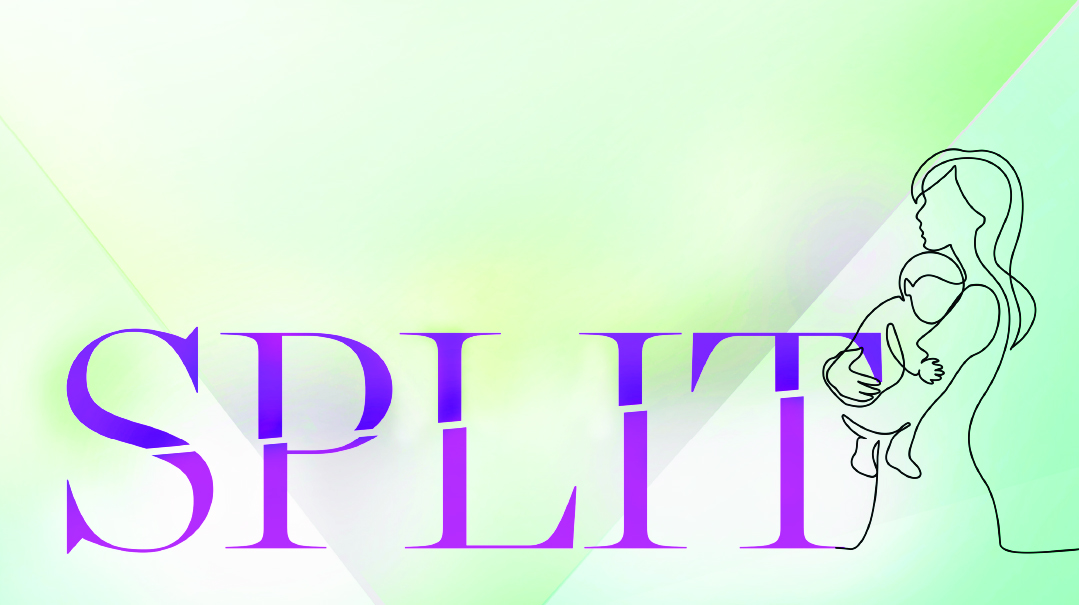Split: Chapter 5
| February 3, 2021I gave him one last kiss and walked out, leaving the surgeons to do their work

Akiva’s first surgery was when he was a tiny three months old. The procedure, which is mainly cosmetic, closes the lip and attaches all the split muscles in the area, and does help somewhat with eating and speech.
When the adult teeth start coming in (usually around 8 years old), kids with cleft generally have a second surgery to repair a cleft in the alveolar ridge, the bony part of the jaw that holds the teeth. This second surgery is mostly about function.
The third, optional, surgery, which some have as teenagers, is to touch up the scars and make the lip look as typical as possible.
On the day of Akiva’s first surgery, only one parent was allowed to accompany him into the operating room. I donned hospital scrubs and followed the little gurney into the OR. The bright lights shone overhead, and we listened to the clatter of technicians preparing scalpels — the ones they would use to cut open our son — as the doctors surrounded Akiva, preparing for the surgery.
“It’s going to happen very quickly,” the anesthesiologist told us. “Give him a kiss and then you can hold his hand while I put him to sleep.” He put the tiny mask over Akiva’s face and we watched his eyes droop shut. The doctors had warned us that it’s heart-wrenching for parents to watch their kids go under, but I wanted to be there. I needed to be there to see our son off.
Akiva’s body jerked for a moment as the anesthesia took hold, then he finally lay still on the operating table. That’s when I gave him one last kiss and walked out, leaving the surgeons to do their work.
The hardest part of saying goodbye was knowing that it’s out of our hands. We had to let go and trust that Hashem will be there with him.
One of the most meaningful photos I have is of my husband standing over the gurney in preop, his hands out to bentsh Akiva with Bircas Habanim. Yevarechicha Hashem veyishmarecha… Hashem, please watch over this child — he’s Your child too. Then we paced the waiting room in prayer, davening that Hashem would watch over our baby and asking that He guide the surgeons’ hands.
Five hours of anxious waiting later, the surgeon came out to tell us that all had gone well and we could go see Akiva in the recovery room.
I wasn’t prepared for the sight. Akiva had stitches over his face, tubes coming from almost every part of his body, and there was so much blood. My eyes welled and my heart clenched.
The anesthesia was supposed to wear off after a few hours, but the time came and went and Akiva was still lying silently in the bed. Was something wrong? The doctors weren’t sure.
They brought machines to his bedside to test that all his organs were still functioning. As far as they could tell, there was no reason that he hadn’t woken up yet. There was nothing we could do other than sit by his bedside and wait. And wait.
I don’t care what he’ll look like anymore, I davened. The morning of the surgery, I had been excited to see how handsome he’d look with a closed lip. Now I just want him okay.
I held his hand or his foot, whatever I could reach that wasn’t covered in wires or blood, and swayed in tefillah. “We’re here, Akiva,” we told him between tears. We sang to him and urged him to please, please wake up. Please.
It took another several hours before Akiva finally stirred, then screamed. He was awake. He was okay!
But he was also in pain. He cried with every move, but there wasn’t much we could do to calm him. How do you explain to a child that the pain is necessary and for their benefit? That there’s good to come of it? You can’t. All you can do is watch and distract them with soft songs, your own tears mixing with theirs.
(Originally featured in Family First, Issue 729)
Oops! We could not locate your form.


